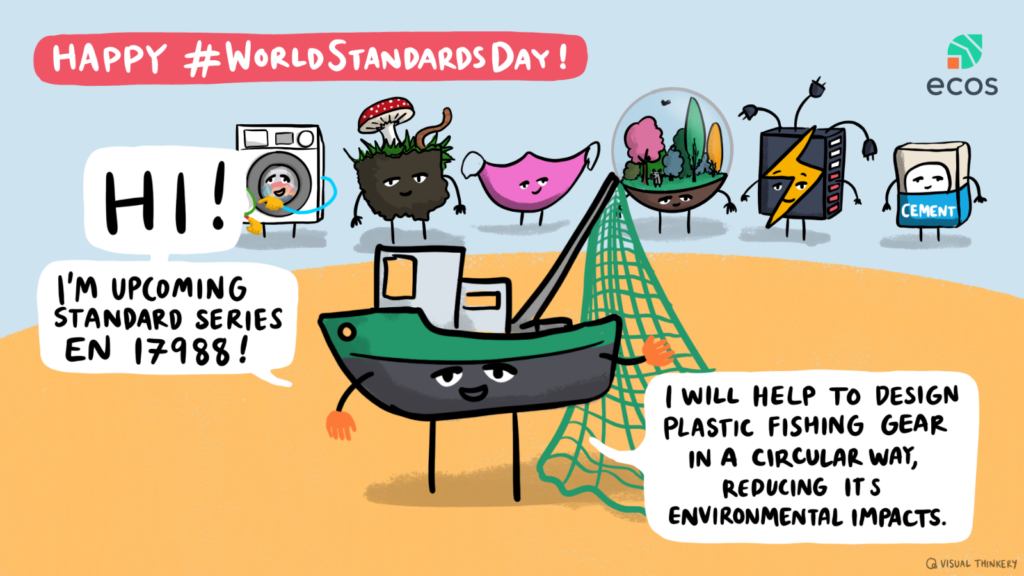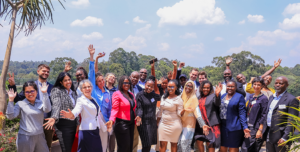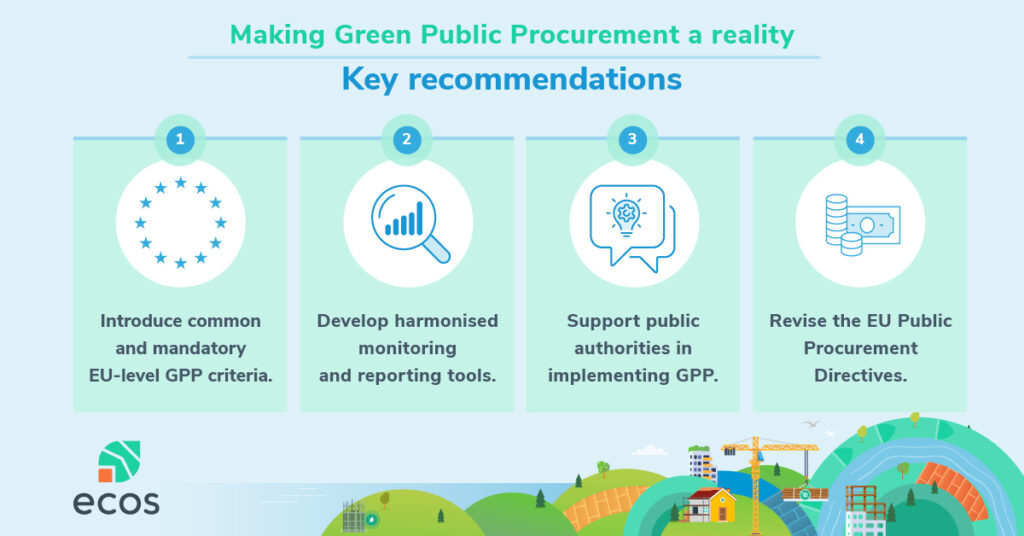2024 – An ambitious environmental agenda
Against a backdrop of political shifts, competing interests, and the stark realities of a changing climate, 2024 was challenging in many ways – but still a year full of important milestones and steps forward for ambitious environmental protection. As 2024 comes to a close, take a look back at some of the highlights of the year.

Stronger international presence – ECOS in Africa
Environmental challenges are not constrained by borders. To amplify our global impact we opened a new Africa office in Nairobi, Kenya earlier this year. We are establishing partnerships and alliances with local and regional organisations and standardisers to exchange knowledge about policy, standards, and environmental concerns in the African region.
In our first year alone, we broke ground with two important projects providing guidance to national governments and authorities in East and West Africa on policies and standards for plastic reduction and textile waste. We also joined the sixth session of the United Nations Environment Assembly in Nairobi as an accredited observer (and we will be attending the next session, UNEA-7, in 2025).
Ecodesign regulation in Europe – four years in the making
The EU’s Ecodesign for Sustainable Products Regulation (ESPR) entered into force this year, more than four years since ECOS first campaigned for ecodesign principles to cover all sectors and products. Collaborating with our members and partners we coordinated efforts to push for stronger ambition, ultimately helping to shape the narrative on the ESPR.
Entering into force this year has put in motion the next steps of this important framework. The implementation of ESPR will be crucial, and standards will have a role to play. First up will be the ban on the destruction of unsold apparel and footwear – we fought hard for a ban against this wasteful practice. Looking ahead there will be preparatory studies on iron, steel, and textiles and the formation of the Ecodesign Forum – ECOS will be there every step of the way.
Join us! 📩 sign up to our newsletter and never miss an update.
Keeping up momentum for a Global Plastics Treaty
We continue the push for an ambitious UN Plastics Treaty to end plastic pollution. We began 2024 with four rounds of negotiations already concluded (and not a lot to show for it), so there was considerable ground to cover this year. ECOS outlined five essentials for an effective plastics treaty.
Frustratingly, talks ended this year without an agreement, so negotiations will continue – but there is still hope as the majority and the momentum are on the side of ambition. Over 100 nations, including EU countries, are fighting for binding rules that address the full lifecycle of plastics. We will continue to support the development of an ambitious plastics treaty in 2025, and its implementation, supported by standards.
Sustainably powering electrification
As the world decarbonises and electrification becomes more widespread, batteries (and the materials needed to manufacture them) are in high demand, such as for electric vehicles (EVs). For batteries to be as sustainable as possible, they must be durable, repairable, reusable, and recyclable – with sufficiency prioritised to prevent materials being used unnecessarily.
In our analysis of the EU Battery Regulation we outline what needs to happen during implementation to ensure a truly circular economy for batteries in Europe. To make sure the carbon footprint is calculated properly, and help push the EV market towards true sustainability, ECOS successfully secured that batteries – not whole vehicles – are used to make the calculation. Vehicle-based calculations risk promoting larger, inefficient vehicles like SUVs (over more compact, efficient ones), because they could appear better for the environment.
Establishing scientifically-sound net zero targets
Pressure is growing for companies to take meaningful climate action – over 1,000 companies have already set a plan to reach net zero. Carbon accounting and reporting standards are the backbone of any net zero plan – but a whirlwind of different definitions and methodologies creates confusion, inaccuracy, and even deception when calculating and reporting on net zero targets. Throughout this year, ECOS has been active in shaping and aligning relevant international initiatives and EU policies. In July we joined over 80 civil society organisations and called on leading global standards bodies to reject the use of carbon offsets – helping to shine a light on this misleading ‘creative accounting’ method and instead build support for scientifically-sound net zero targets.
Driving public purchase towards green construction products
Public procurement is one of the EU’s most important but underused economic tools. At our annual conference this year, we put the spotlight on the huge potential for green public procurement in the construction sector. We released a new report showing that applying ambitious green public procurement rules across the EU would cut emissions from concrete and steel by half. Whether it be schools, bridges, hospitals, or other essential public infrastructure – green public procurement is a powerful tool that can ensure that public money is spent well.
Moving towards a ‘right to repair’ in Europe
As a founding member and adviser of the Right to Repair Coalition, we hit a major milestone in 2024 with the EU’s Right to Repair Directive. European consumers now have better access to affordable repairs for certain products, and some of the bad practices that prevented independent repair were also banned. This was a big step in the right direction for affordable and accessible repair – a win for the environment.
But we’re not there yet! The Right to Repair Directive is only applicable to a small group of products that are already covered by EU reparability requirements. Our end goal is for this legislation to apply to more products—only then will we truly be able to speak about a right to repair in Europe.
New European standards for fishing gear help reduce ocean plastic
The fight against plastic pollution has been a longstanding priority for ECOS. Since 2020, we have actively participated in the development of new European standards for the ‘Circular design of fishing gear and aquaculture equipment’. Published by the European standardiser CEN in November 2024, the EN 17988:2024 series of standards will provide detailed and specific guidance for the fishing and aquaculture industry to transition away from a linear to a circular economy, helping to reduce marine litter and the risks it poses to marine ecosystems, biodiversity, and human health.
 Learn more about this standard, and others, in our blog for World Standards Day 2024.
Learn more about this standard, and others, in our blog for World Standards Day 2024.
A challenging year, but a busy year – we grew the ECOS membership to 58 in 2024 and we launched new work areas, including data centres, green public procurement, biodiversity, and critical raw materials. We will continue to expand next year – launching new projects and new work areas that help us adapt to changing political and natural climates, ensuring we are well positioned to make the most impact.
Many of our achievements in 2024 are just the beginning and we will follow this work into 2025 and beyond as many ambitious initiatives and policies will be implemented, enabled by standards and secondary legislation.
We extend our thanks to all of our members, experts, funders, partners, and colleagues. We look forward to continued success in 2025!






